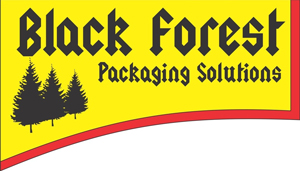How to Optimize Your Food Packaging Process with Advanced Machine Technology
In today's fast-paced food industry, optimizing the food packaging process is crucial for maintaining efficiency, sustainability, and quality. As businesses strive to meet growing consumer demands and stringent regulations, leveraging advanced machine technology has become indispensable. The integration of sophisticated machinery in the food packaging domain not only streamlines operations but also enhances product safety and shelf life.
 By focusing on "machine packaging food," companies can improve their production capabilities while reducing waste and operational costs. This blog will explore various innovative technologies and strategies that can be employed to elevate your food packaging processes, ensuring that your business remains competitive in an ever-evolving market.
Join us as we delve into the transformative potential of advanced machinery in revolutionizing the way food is packaged and delivered to consumers.
By focusing on "machine packaging food," companies can improve their production capabilities while reducing waste and operational costs. This blog will explore various innovative technologies and strategies that can be employed to elevate your food packaging processes, ensuring that your business remains competitive in an ever-evolving market.
Join us as we delve into the transformative potential of advanced machinery in revolutionizing the way food is packaged and delivered to consumers.
Key Advantages of Advanced Machine Technology in Food Packaging
Advanced machine technology is revolutionizing the food packaging process, bringing significant advantages that enhance efficiency and safety. According to a recent report by Smithers Pira, the global smart packaging market is expected to grow from $22 billion in 2020 to over $35 billion by 2026. This surge indicates a strong preference for technologies that not only improve the packaging process but also maintain food quality. Automated systems can reduce packaging time by up to 30%, allowing food manufacturers to meet increasing consumer demands without sacrificing quality.
Implementing advanced machine technology offers several key advantages, including improved accuracy in packaging, reduced material waste, and enhanced shelf life of products. Automated packaging solutions, such as vertical form-fill-seal machines, provide consistent and precise measurements, minimizing the risk of overfilling or underfilling packages. Additionally, packaging materials with intelligent sensors can track freshness and inform consumers about the product's shelf life, which can lead to reduced spoilage rates by as much as 35%.
Tips: Invest in training for your team to ensure they fully understand the advanced technology at their disposal. This can enhance operational efficiency and reduce downtime. Furthermore, consider integrating data analytics tools to monitor packaging processes and identify areas for improvement, ultimately leading to cost savings and better product quality.
How to Optimize Your Food Packaging Process with Advanced Machine Technology
| Advantage | Description | Impact on Process | Example Technologies |
|---|---|---|---|
| Increased Efficiency | Advanced machinery can automate repetitive tasks and reduce manual errors. | Shorter production times and reduced labor costs. | Robotic arms, automated filling machines |
| Enhanced Quality Control | High-precision machines ensure consistent quality and minimize defects. | Improved product safety and customer satisfaction. | Vision systems, weight checkers |
| Sustainability | Modern machines use eco-friendly materials and reduce waste processing. | Lower environmental impact and compliance with regulations. | Biodegradable packaging techniques |
| Flexibility | Advanced equipment can be quickly adjusted for different products. | Ability to launch new products without significant downtime. | Modular packaging systems |
Integrating Automation for Enhanced Efficiency in Food Packaging
 In the food packaging industry, integrating automation technology is pivotal for enhancing efficiency and ensuring product safety. According to a report by Smithers Pira, the global smart packaging market is projected to reach $41.7 billion by 2025, with automation playing a crucial role in this growth. Automation not only streamlines the packaging process but also reduces human error, ensuring that products meet stringent food safety standards.
In the food packaging industry, integrating automation technology is pivotal for enhancing efficiency and ensuring product safety. According to a report by Smithers Pira, the global smart packaging market is projected to reach $41.7 billion by 2025, with automation playing a crucial role in this growth. Automation not only streamlines the packaging process but also reduces human error, ensuring that products meet stringent food safety standards.
Advanced machine technology, such as robotics and AI-driven systems, can significantly optimize workflows. For instance, the Food Processing Technology Report highlights that companies implementing automated packaging solutions have seen a 25% increase in production speed and a 20% reduction in material waste. By utilizing real-time data analytics, businesses can also better forecast demand, adapt to market changes swiftly, and minimize operational downtime. The shift towards automation is not just about enhancing efficiency; it is also about keeping pace with consumer demands for faster delivery and improved product freshness.
Sustainability in Food Packaging: Reducing Waste with Smart Machines
The food packaging industry is undergoing a significant transformation driven by advancements in machine technology, particularly in promoting sustainability. With the increasing awareness of environmental impacts, smart machines are being developed to minimize waste throughout the packaging process. These innovative solutions utilize cutting-edge sensors and automation to optimize material usage, ensuring that packaging is tailored to the specific needs of the product. This reduces excess material that typically contributes to landfill waste, making operations more efficient and environmentally friendly.

Moreover, by integrating data analytics and machine learning, food packaging processes can be fine-tuned in real-time, further enhancing sustainability. For instance, smart machines can monitor inventory levels and adjust packaging materials accordingly, reducing the footprint of excess production. Additionally, companies can implement recycling programs and utilize biodegradable materials that are compatible with new smart technologies, leading to a drastic reduction in single-use plastics. The shift towards smarter, greener packaging solutions not only aligns with consumer demands for more sustainable products but also creates a more responsible and profitable packaging industry.
Ensuring Food Safety: How Technology Transforms Packaging Standards
In today’s food industry, ensuring food safety is paramount, and advanced machine technology plays a crucial role in transforming packaging standards. Innovative packaging solutions, such as vacuum sealing and modified atmosphere packaging, not only enhance the shelf life of perishable products but also protect them from contamination. These technologies leverage real-time monitoring systems that detect any anomalies during the packaging process, enabling swift corrective actions to maintain food integrity and safety.
Furthermore, automation in the packaging process significantly reduces human error, which is essential for adhering to stringent food safety regulations. Automated machines equipped with artificial intelligence can analyze packaging materials and adjust parameters in real-time to optimize performance and minimize waste. This level of precision ensures that food products remain uncontaminated and safe for consumption, ultimately leading to higher consumer trust and satisfaction. As the food industry continues to evolve, the integration of advanced machine technology into packaging processes represents a vital step toward achieving exceptional food safety standards.
Future Trends in Food Packaging Technology and Their Impact on the Industry
In recent years, the food packaging industry has witnessed remarkable advancements influenced by emerging technologies. According to a report by MarketsandMarkets, the global smart packaging market is projected to reach $34.88 billion by 2028, expanding at a CAGR of 8.9%. This growth is driven by the increasing demand for efficient supply chain management and enhanced food safety measures. Advanced materials and technology, such as intelligent packaging that monitors freshness and provides real-time data, are becoming essential components of modern packaging solutions.
Sustainability is another critical trend reshaping the food packaging landscape. The Packaging Industry Association highlights that 74% of consumers prefer eco-friendly packaging, pushing companies to invest in biodegradable materials and recyclable designs. Innovations in biodegradable packaging technologies have led to the development of materials derived from renewable resources, reducing reliance on plastics that contribute to environmental degradation. As these trends continue to evolve, food businesses that embrace advanced packaging technologies will not only enhance operational efficiency but also cater to the growing consumer demand for sustainable practices in the industry.
Impact of Advanced Machine Technology on Food Packaging Efficiency
Related Posts
-

The Future of Innovative Flexible Packaging Machines for Sustainable Solutions
-
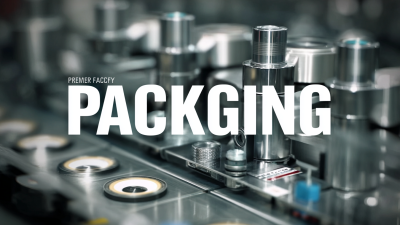
Premier Chinese Factory Delivers Exceptional Packaging Equipment and Machinery Worldwide
-
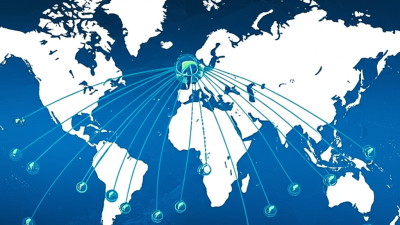
Global Reach of Chinese Manufacturing in Best Packaging Equipment with Trusted Quality Standards
-
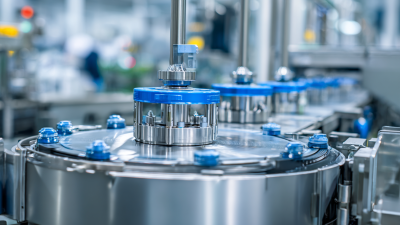
Leading the World with Quality Chinese Food Packaging Solutions
-
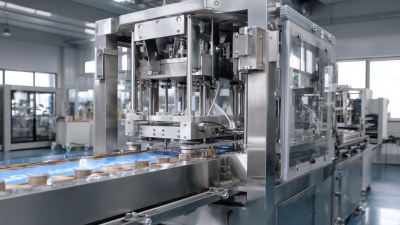
What is the Best Machine for Food Packaging: A Comprehensive Guide
-
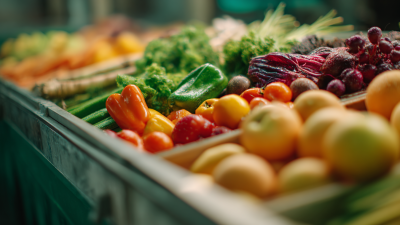
Exploring Innovative Alternatives in Produce Packaging Machinery Solutions
